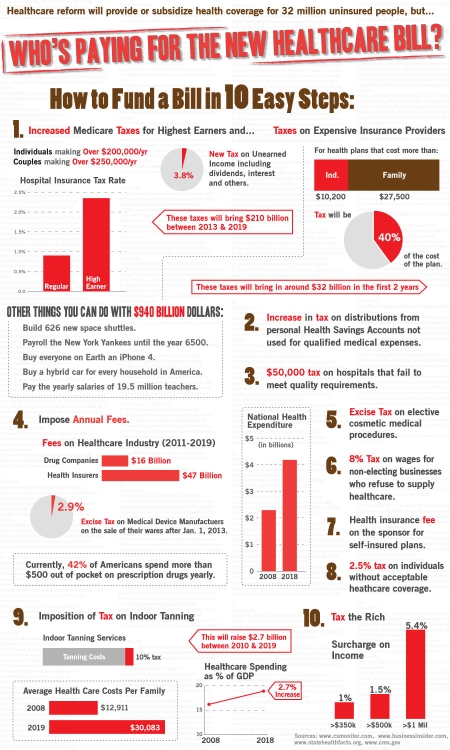
July 6th, 2010 by GarySchwitzer in Better Health Network, Health Policy, News, Opinion, Quackery Exposed
Tags: Big Pharma, Buy Doctors Lunch, Commercial Support, Drug Companies, Drug Rep Lunches, Drug Reps, Gary Schwitzer, General Medicine, Health Journalism, HealthNewsReview.org, Industry-Supported Medical Education, Misinformed, Misleading, Naive, Pharma-Paid Lunches, Pharmaceutical Companies, Pharmaceutical Reps, Pharmacology, Slate.com
No Comments »

 “Appetite for Instruction: Why Big Pharma should buy your doctor lunch sometimes” is the headline of an article on Slate.com that has upset many readers. I’m not terribly upset about it because it just seems too naive and misinformed to get upset about. The final line of the piece tells you all you need to know about the tone of the column:
“Appetite for Instruction: Why Big Pharma should buy your doctor lunch sometimes” is the headline of an article on Slate.com that has upset many readers. I’m not terribly upset about it because it just seems too naive and misinformed to get upset about. The final line of the piece tells you all you need to know about the tone of the column:
“Ousting commercial support is creating a huge chasm in medical education, leaving doctors not only hungry but also starved for knowledge.”
A number of online comments were posted in reaction to the piece. Read more »
*This blog post was originally published at Gary Schwitzer's HealthNewsReview Blog*
July 6th, 2010 by Harriet Hall, M.D. in Better Health Network, Health Tips, News, Research
Tags: CDC, Centers For Disease Control and Prevention, Chickenpox, Family Medicine, General Medicine, Herpes Zoster, Immunization, Immunology, Infectious Disease, Internal Medicine, NNT, Number Needed To Treat, PHN, Placebo, Postherpetic Neuralgia, Primary Care, Public Health, shingles, VA, Vaccination, Vaccine, Varicella Zoster Virus, Veterans Administration, Zostavax
1 Comment »

Shingles (herpes zoster) is no fun. It usually begins with a couple of days of pain, then a painful rash breaks out and lasts a couple of weeks. The rash consists of blisters that eventually break open, crust over, and consolidate into an ugly plaque. It is localized to one side of the body and to a stripe of skin corresponding to the dermatomal distribution of a sensory nerve.
Very rarely a shingles infection can lead to pneumonia, hearing problems, blindness, brain inflammation (encephalitis) or death. More commonly, patients develop postherpetic neuralgia (PHN) in the area where the rash was. The overall incidence of PHN is 20%; after the age of 60 this rises to 40%, and after age 70 it rises to 50%. It can be excruciatingly painful, resistant to treatment, and can last for years or even a lifetime. Read more »
*This blog post was originally published at Science-Based Medicine*
July 6th, 2010 by Joseph Scherger, M.D. in Better Health Network, Health Tips, News, Research
Tags: Added Sugars, American Diet, Chronic Disease, Denver, Dietetics, Drink Water, Family Medicine, Fructose, General Medicine, Healthy Diet, High Blood Pressure, High Fructose Corn Syrup, Hypertension, Internal Medicine, Journal of the American Society of Nephrology, Low Sugar, National Nutrition Survey, Natural Fruit, Obesity Epidemic, Primary Care, Salt, Soft Drinks, Sugar, Sugar Free, University of Colorado
1 Comment »

Most of us know that salt raises blood pressure in many people. When I learned that in medical school almost 40 years ago, I have not touched a salt shaker since. I enjoy having a low normal blood pressure. A new study published in the Journal of the American Society of Nephrology (July 2010) suggests that sugar, especially the fructose that comes from corn syrup, may also raise blood pressure.
A study team from the University of Colorado in Denver looked at sugar intake among thousands of Americans in a major national nutrition survey between 2003 and 2006. Those who consumed more added sugars, such as the fructose in soft drinks, had significantly higher blood pressures than those who did not and ate more natural foods such as fresh fruit. Fructose from corn syrup is a major cause of the obesity epidemic and may also be contributing to high blood presure, the most common chronic disease in adults. Read more »
*This blog post was originally published at eDocAmerica*
July 5th, 2010 by KevinMD in Better Health Network, Health Policy, News, Opinion, Research
Tags: ACEP, American College of Emergency Physicians, American Medical Association, Angela Gardner, Associated Press, Battery Of Tests, Cardiology, Chest Pain, Doctor Sued, Doctor-Patient Communication, Dr. Robert Bitterman, Emergency Department, Emergency Medicine, Emergency Room Doctors, ER, Evidence-Based, Health Reformers, Malpractice Insurance, Malpractice Protection, Medical Lawsuits, Medical Malpractice, Overtesting, Pros And Cons Of Testing, Shared Decision, Standardized Guidelines, Suspected Heart Attacks, Unhappy Patients, Unnecessary Medical Tests, X-ray
No Comments »

Emergency physicians are in a dilemma. Risk missing a diagnosis and be sued, or be criticized for overtesting.
Regular readers of this blog, along with many other physicians’ blogs, are familiar with the difficult choices facing doctors in the emergency department.
The Associated Press, continuing its excellent series on overtesting, discusses how lawsuit fears is a leading driver of unnecessary tests. Consider chest pain, one of the most common presenting symptoms in the ER:
Patients with suspected heart attacks often get the range of what the ER offers, from multiple blood tests that can quickly add up in cost, to X-rays and EKGs, to costly CT scans, which are becoming routine in some hospital ERs for diagnosing heart attacks …
… and the battery of testing may be paying off: A few decades ago insurance statistics showed that about 5 percent of heart attacks were missed in the emergency room. Now it’s well under 1 percent, said Dr. Robert Bitterman, head of the American College of Emergency Physicians’ medical-legal committee.
“But you still get sued if you miss them,” Bitterman added.
The American Medical Association’s idea of providing malpractice protection if doctors follow standardized, evidence-based guidelines makes sense in these cases. Furthermore, it can also help reduce the significant practice variation that health reformers continually focus on. Read more »
*This blog post was originally published at KevinMD.com*
July 5th, 2010 by Berci in Better Health Network, Health Policy, News, Opinion, Research
Tags: Cost Of Healthcare Reform, Healthcare Economics, Healthcare reform, New U.S. Healthcare Bill, Who's Paying For It
No Comments »

Ever wondered who’s paying for the U.S. healthcare bill? My new favorite blog just published an infographic describing this issue in detail (click on the image for the original larger version):

*This blog post was originally published at ScienceRoll*
 “Appetite for Instruction: Why Big Pharma should buy your doctor lunch sometimes” is the headline of an article on Slate.com that has upset many readers. I’m not terribly upset about it because it just seems too naive and misinformed to get upset about. The final line of the piece tells you all you need to know about the tone of the column:
“Appetite for Instruction: Why Big Pharma should buy your doctor lunch sometimes” is the headline of an article on Slate.com that has upset many readers. I’m not terribly upset about it because it just seems too naive and misinformed to get upset about. The final line of the piece tells you all you need to know about the tone of the column:
















